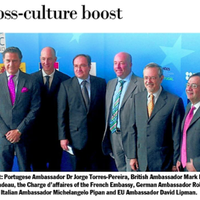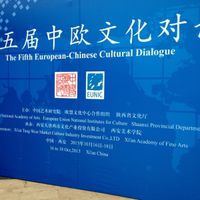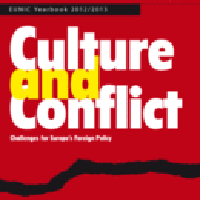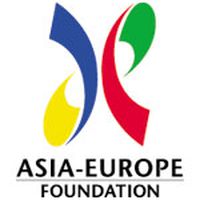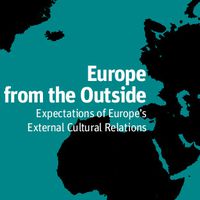Europe-China Cultural Compass | new publication launched

The EUROPE-CHINA CULTURAL COMPASS is a new publication offering guidance, practical information and informed opinion on cultural cooperation between Europe and China. An initiative by EUNIC partners in China, it is part of an ongoing dialogue between Europe and China.
Are we meaning the same, when we say the same? -- This was the leading question at the start of the EUROPE-CHINA CULTURAL COMPASS project, an initiative by partners of EUNIC in China, the Goethe-Institut, the British Council, and The Danish Cultural Institute.
After a year of research, including over a hundred interviews and discussions between cultural practitioners on experience of collaboration between Europe and China, the result is a publication with a glossary of selected intercultural key-vocabulary, and a broad range of knowledge relevant for cooperation: context knowledge on Europe and China (history, society, media, value systems, etc), information on how the cultural sectors work differently, case stories of cultural practitioners, a project cycle analysis crystallising challenges, learning and practices, and an extensive resources chapter.
The EUROPE-CHINA CULTURAL COMPASS project is part of an ongoing dialogue between Europe and China. It responds to the need to document this dialogue, to reflect on it, for a continuous improvement in the process. It wants to contribute to the understanding of Europe-China cultural cooperation. The intention is to help prepare cultural practitioners for collaboration.
The COMPASS addresses both Chinese and European readers. To meet the different needs of the two target groups, two separate publications were produced, one in Chinese and one in English. These are available as free downloads.
The concept and creation of the COMPASS was commissioned to an intercultural working team headed by Katja Hellkoetter as editor-in-chief; experts in the team included Shen Qilan, Katelijn Verstraete, Emilie Wang, Judith Staines, Yi Wen, Roman Wilhelm, and many more external authors and contributors from China and Europe.
The editorial board was headed by Peter Anders (Director of the Goethe-Institut in Beijing), Eric Messerschmidt (Head of the The Danish Cultural Institute in Beijing) and Joanna Burke (British Council, China Director, Cultural and Education Section of the British Embassy in Beijing).
DOWNLOAD the publication (English and Chinese versions available) on the EUNIC website
Similar content
posted on
23 Oct 2012
posted on
09 Sep 2014
posted on
04 Jun 2013
posted on
20 Oct 2014
posted on
17 Apr 2010
posted on
02 Jun 2014

